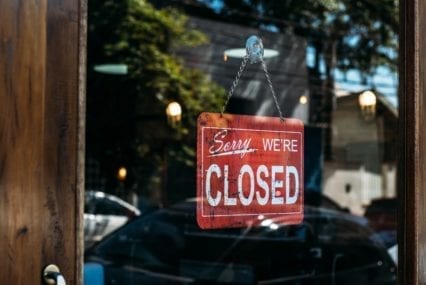Everyone — from the biggest government agencies that often smother small businesses with red tape to the biggest businesses which often suffocate small businesses with monopoly power — likes to say that they support small businesses. Indeed, one of the country’s biggest defense contractors testified at a deposition that small businesses are “the backbone of the American economy.”
But while big government and big business love to talk the talk, do they walk the walk when it comes to supporting small business? Sadly, the answer is usually no.
A good place to start is with the U.S. Small Business Administration (SBA), an agency whose sole purpose is to help small businesses and to ensure that the government complies with the Small Business Act, a 1953 law designed to ensure small businesses get no less than 23% of government contracting dollars.
The SBA every year puts out a press release proclaiming that it meets its goals in complying with small business contracting and sub-contracting mandates. But when asked what criteria it uses to determine whether a business is really “small,” it has doggedly refused to answer that question. Even when sued by the country’s leading small business advocate, the American Small Business League (ASBL), in a Freedom of Information Act case, SBA dug in its heels and said it wouldn’t divulge its criteria for determining whether a business getting government contracting dollars was considered “small” for purposes of its annual scorecard.
SBA’s latest fight against the small businesses it is supposed to help is nothing new for the agency.
SBA was the federal agency tasked with managing the hundreds of billions of dollars the government rushed out the door in the Paycheck Protection Program (PPP) passed after the COVID-19 pandemic broke in the spring of 2020. While small mom-and-pop restaurants and other small businesses were the poster children for the PPP, it quickly emerged that many large businesses — from restaurant chains to large law firms to the Los Angeles Lakers — were getting PPP money.
For example, San Jose-based AKON, Inc., which supplies products to leading defense contractors Lockheed Martin, Northrop Grumman, BAE Systems, Raytheon, DRS Systems, Naval Research Laboratory, Jet Propulsion Lab, Indian Air Force, and the Turkish Navy, received two PPP loans totaling $679,539. SBA’s mishandling of the PPP money was so bad that even its own inspector general castigated the agency for how it handled the PPP, saying the SBA’s publicly-reported and loan-level PPP data was “inaccurate and incomplete,” and the SBA failed to issue sufficient guidance to PPP lenders to prioritize underserved markets during the initial round of funding.
Indeed, SBA’s image-first, substance-second bureaucracy has consistently landed it in hot water with courts.
More than a decade ago, it refused to provide a list to the American Small Business League (ASBL) of the small businesses it included in its annual “scorecard,” causing a Northern California judge, Marilyn Hall Patel, to “find curious” the SBA’s argument that it didn’t have the very records it needed to fulfill its mission. Then it initially refused to disclose the names and loan amounts of the businesses who received PPP loans, finally throwing in the towel after a District of Columbia judge ruled against it in a 2020 FOIA case. Its press office — under the leadership of a former Pentagon lobbyist who has since departed the agency — tried to charge ASBL exorbitant “search and review” fees of over $10,000, prompting a federal lawsuit which was resolved in ASBL’s favor.
ASBL president Lloyd Chapman said, “They should change the name of the Small Business Administration to the Big Business Administration because that’s who’s really getting the billions in federal contracts they claim is going to small businesses.”
Does political party affiliation, or the party in power, play a role in all this? Apparently not.
The hundreds of billions of dollars the government rushed out in PPP money in 2020 were approved by a Democratic House, a Republican Senate and Republican President Donald Trump. But the SBA’s behavior hasn’t changed during unified Democratic control of Washington. President Joe Biden appointed a new SBA administrator whom, one might have hoped, would have sided with small business underdogs, but from its behavior during the Biden administration, SBA has been the same old bureaucratic foot-dragging agency devoting words, but not action, to helping small businesses. It doesn’t have to be, and shouldn’t be, that way.
Karl Olson is a San Francisco lawyer who specializes in obtaining access to government agency records through the California Public Records Act and the federal Freedom of Information Act. He represents the American Small Business League and, in unrelated litigation, San José Spotlight.


